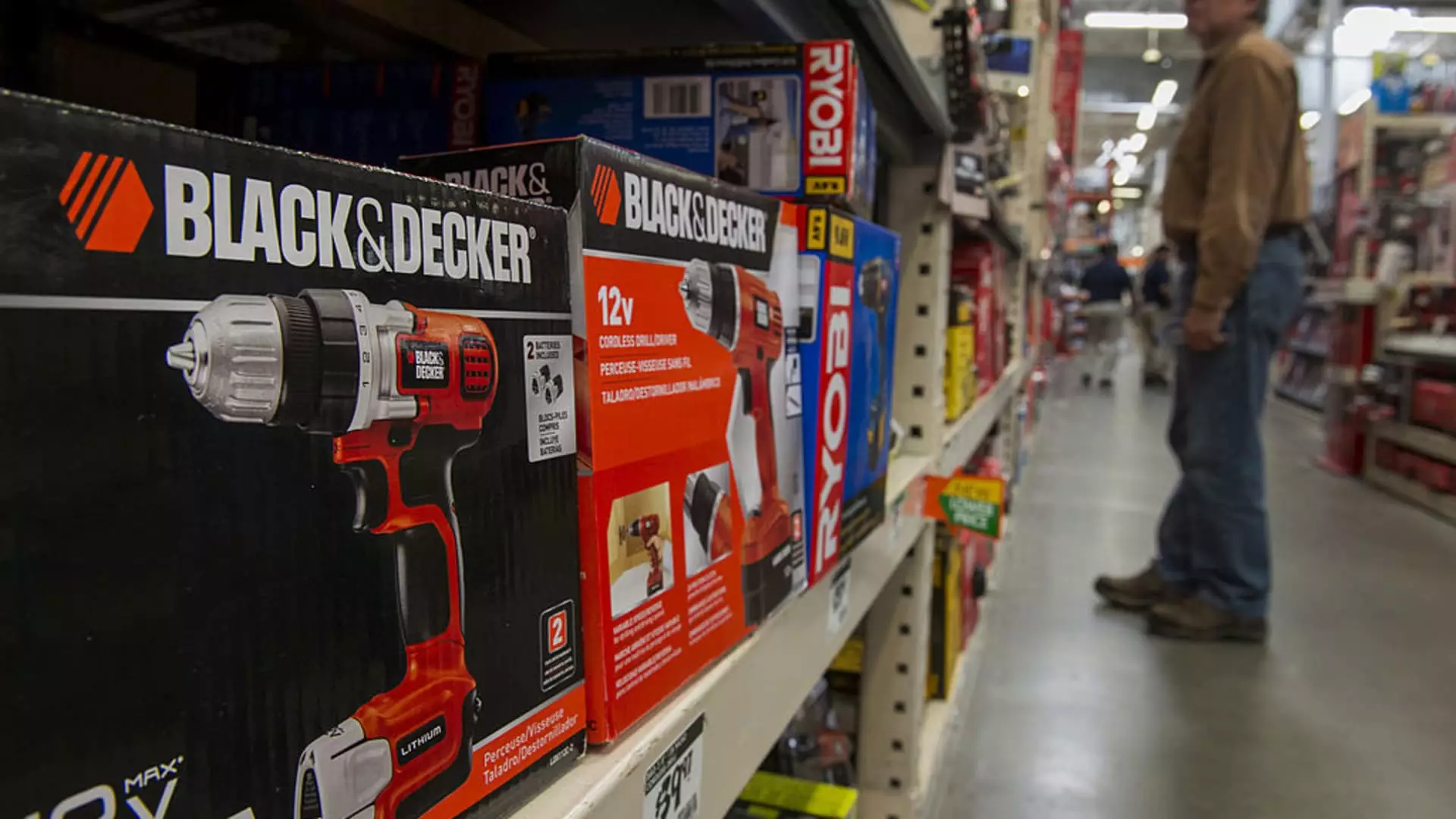The recent plunge in Stanley Black & Decker’s stock is indicative of the volatile nature of the stock market, especially following the quarterly earnings release. On Tuesday, shares fell nearly 12%, driven by disappointing revenue figures and a weaker-than-expected outlook for the fourth quarter. This reaction might seem severe at first glance; however, it presents an intriguing opportunity for savvy investors. Notably, market analyst Jim Cramer characterized this drop as excessive, suggesting that the company’s performance was misinterpreted.
Despite falling short of analyst expectations, it’s essential to dissect the underlying reasons behind the company’s reported earnings. Cramer pointed out that the dip in sales is tied to broader economic factors affecting consumer confidence in the housing market. Purchases of home improvement tools are closely linked to homeowners’ perception of their property values. As Cramer noted, consumers may hesitate to invest in tools such as DeWalt or Stanley Black & Decker products without a belief that their homes will appreciate in value. This hesitation creates volatility in sales, particularly in uncertain economic climates.
What serves as a pivotal lifeline for Stanley Black & Decker and its investors is the anticipated shift in monetary policy by the Federal Reserve. Should the central bank continue to lower interest rates, it could foster an increase in housing market activity. With decreased borrowing costs, homeowners may feel more inclined to invest in home improvements, which would drive demand for the tools Stanley Black & Decker produces. Hence, despite recent bond market fluctuations not aligning perfectly with this narrative, Cramer maintains optimism for the stock’s future.
Investors must remain analytical and patient. As Cramer illustrates, the current dip reflects market sentiment more than the company’s actual performance. For those positioned to take a longer-term view, this stock could represent a compelling buying opportunity. Cramer emphasizes this further by noting that predictive measures indicate that the current downturn may not be the right time to abandon a strategic investment in Stanley Black & Decker. Hence, a rationale for acquiring shares aggressively centers on the belief that a recovery is on the horizon.
The drastic price cut for Stanley Black & Decker’s shares following the quarterly report may understandably concern some investors. However, this report does not necessarily signify a failing enterprise. Instead, the data reflects pressures within the housing market and overall economic sentiment. Based on Cramer’s insights, this moment may serve as a unique entry point for investors who recognize the potential for recovery as economic conditions evolve. With the right timing and strategies in place, Stanley Black & Decker’s stock could rebound, offering substantial returns for those bold enough to invest in its current misfortune.

